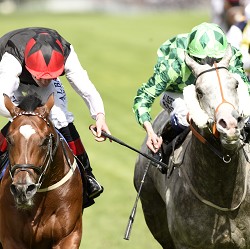Poly O-F Weight Gain Products for Horse
Copa
Ireland work with breeders, trainers, and owners to ensure that horses meet
their athletic and breeding potential. Our Poly O-F weight gain product for horse
reduces the risks of equine colonic ulcers and colics. Contact us to buy
products for horse today!
Equine Gastric Ulcers
A surprisingly high percentage of
horses suffer from gastric ulcers to one degree or another. Understanding the
signs and symptoms is an important part of being a horse owner if you want your
horse to be healthy and performing at its best.
Which horses are prone to gastric ulcers?
• 90% of Race Horses • 60% of
Performance Horses • 50% of Foals • 30% of Leisure Horses *approximate
percentages
What are equine gastric ulcers?
Equine Gastric Ulcer Syndrome (EGUS),
a term used to describe horses with gastric ulcers, refers to damage to the
horse’s stomach lining from excessive stomach acid. This acid induced damage
can cause great discomfort, not to mention reduced performance and condition
problems. In some cases, usually in foals, ulceration can be severe enough to
cause death.
What are some of the causes of equine stomach
ulcers?
All the risk factors for equine
gastric ulcers have yet to be determined, but some of the more commonly
encountered ones are presented below. It is important to note, however, that
horses can develop severe ulcers even in the absence of these characteristic
risk factors. • Diet – As horses’ stomachs are designed for constant foraging,
there is a continuous secretion of acid within the stomach. Prolonged periods
without food to neutralize the acid can lead to ulceration. • Training &
Exercise – There is a definite association between equine training and gastric
ulcers. Even non intensive training is associated with a high prevalence of
stomach ulcers. It has been shown that blood flow to the stomach (which helps
to remove acid) decreases with exercise – while increased pressure in the
abdomen during exercise pushes acid up into the sensitive portion of the
stomach. • Physical Stress & Illness – Gastric ulcers can occur in response
to physiological stress. Shock, respiratory disease and traumatic injury may
play a role. Equine transportation and stable confinement are proven risk
factors in causing ulcers. • Psychological stress – While psychological stress
is difficult to evaluate in horses and foals, stressful conditions may
adversely influence feed intake, resulting in periods of increased stomach
acidity. • Medication – Some long term medications can produce adverse gastric
effects, as they may inhibit production of the substances that help to protect
the stomach.
At Copa Ireland, we also provide Poly O-F gut nutrition products for horses that stimulates the hind gut increasing the
nutrient uptake from the feed, increases appetite, improves condition and
weight gain.



Comments
Post a Comment